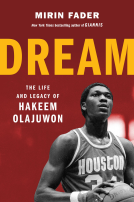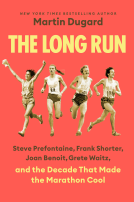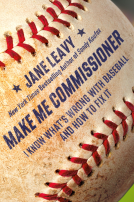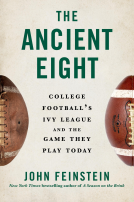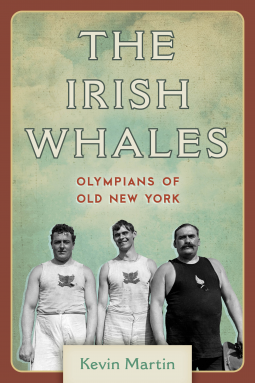
The Irish Whales
Olympians of Old New York
by Kevin Martin
This title was previously available on NetGalley and is now archived.
Send NetGalley books directly to your Kindle or Kindle app
1
To read on a Kindle or Kindle app, please add kindle@netgalley.com as an approved email address to receive files in your Amazon account. Click here for step-by-step instructions.
2
Also find your Kindle email address within your Amazon account, and enter it here.
Pub Date Sep 20 2020 | Archive Date Sep 20 2020
Talking about this book? Use #TheIrishWhales #NetGalley. More hashtag tips!
Description
In the early 1900s, the Olympic Games track and field throwing events were dominated by a group of Irish-born weight throwers representing the United States. Of immense size and with a larger-than-life presence, these athletes came to be known as the “Irish Whales.”
In The Irish Whales: Olympians of Old New York, Kevin Martin shares the untold story of these Irish American athletes who competed with unparalleled distinction for the United States. James Mitchell, John Flanagan, Martin Sheridan, Pat McDonald, Paddy Ryan, and Con Walsh won a total of eighteen medals in the Olympic Games between 1900 and 1924 and completely dominated the world stage in their chosen athletic disciplines. They were lionized in the American and Irish press and became folk heroes among Irish-American immigrant communities. Almost all of these men were further distinguished by their membership in the fabled Irish American Athletic Club of New York and careers with the New York Police Department.
The story of the Irish Whales is the very embodiment of the American Dream and exemplifies the triumph of many Irish emigrants in the New World. Featuring a wonderful collection of original photographs, The Irish Whales tells the dramatic stories of these international athletes and their extraordinary sporting successes.
Available Editions
| EDITION | Hardcover |
| ISBN | 9781538142301 |
| PRICE | $32.00 (USD) |
Average rating from 3 members
Featured Reviews
What does it mean to be a sports hero? There are so many different arenas in which athletes can excel and become part of the story of their sport, whether we’re talking about professional championships or individual records or Olympic glory or some combination therein. Athletic prowess has been turning ordinary men and women into legends for centuries.
But while some heroes become ensconced, forever part of the story of their sport, others fade into the margins of history. No matter how highly celebrated and decorated in their day, they don’t maintain their spot in the popular imagination. But those athletes and their feats still matter, even if they’ve been forgotten … and their stories still deserve to be told.
Kevin Martin’s “The Irish Whales: Olympians of Old New York” relates the tale of one such group of forgotten heroes. These men, a collection of Irish immigrants to the United States in the late 19th and early 20th centuries, were athletic sensations during that stretch. As a group, these men thoroughly dominated the world of field events through the early days of the modern Olympics, becoming sensations on both sides of the Atlantic and bringing great pride to both their native country and their adopted homeland.
Through a meticulously detailed and researched exploration of these men, a new appreciation can be gained for these athletic marvels who, despite global fame in their day, ultimately faded into relative obscurity. Their greatness is undeniable; this book proves a worthwhile introduction to that greatness.
The influx of Irish immigrants in the latter part of the 19th century is well-documented. For a significant stretch of time, the Irish accounted for a huge percentage of total immigration to the United States. This meant that the Irish American population exploded, particularly in the urban Northeast. It also meant a lot of anti-Irish sentiment and prejudices.
Part of the way that the Irish assimilated into their new country was through sport. Athletics were a major part of Irish life; that tendency remained with them in their adopted home. Among the most popular sporting endeavors for the Irish was … throwing. Much of Irish athletic culture revolved around throwing things as far as possible – stones, shot puts, hammers, you name it. And that cultural affinity proved quite helpful during this time, as the modern Olympics were born and interest in track and field events boomed.
As it turned out, there were a handful of new Americans from Ireland who were prepared to define the world of field events for decades.
It all started with Jim Mitchell, who landed on American shores in 1888 with a staggering collection of athletic accolades already in hand, thanks to his utter domination of various Irish throwing championships. He continued that dominance within days of his arrival, breaking three throwing records … and he just got better. He dominated the last decade of the 19th century, winning eight straight hammer championships from 1889 to 1896 while also holding the 56-pound weight throw title from 1891-1896. He was an athletic marvel.
Next comes John Flanagan, whose dominance would track through the first few iterations of the modern Olympics, winning the gold in the hammer throw in 1900, 1904 and 1908 – the only man to win three straight Olympic golds in a field event. From the moment of his arrival in 1896, Flanagan was a star – he had already been setting and breaking records from a young age in Ireland. He took the mantle of Irish-American throwing from Mitchell (though Mitchell was far from done competitively), receiving such monikers as “The Modern Hercules.”
From there, the list goes on: Martin Sheridan, Pat McDonald, Paddy Ryan. For decades, these men – known collectively as the Irish Whales – would dominate the global scene in their disciplines. As a group, they would win a staggering 18 Olympic medals from 1900 to 1924, setting and breaking scores of records along the way. All of them tied to each other through their sport and their heritage.
“The Irish Whales” spends much of its time breaking down the sporting endeavors of its subjects, of course, but Martin also paints a picture of the larger culture of the Irish in America at that time. The struggle for the Irish to gain an economic foothold, for instance. The pushback of Protestantism against the overwhelmingly Catholic faith of the Irish. The largely Irish-driven political machine that was Tammany Hall, which led to an outsized Irish presence in places like the New York City Police Department (where many of the Whales would ultimately make their professional careers).
As someone with a general affinity for sports history and a particular fondness for learning about forgotten stories from that realm, I found “The Irish Whales” to be especially satisfying. These men and their feats struck a chord with me – as a former competitive thrower, I have a very good idea of just how great they must have been to accomplish what they did. They pushed one another to maximize their gifts, making one another greater than they ever could have been alone.
“The Irish Whales” is quality sports history, ideal reading for anyone still lamenting the loss of this year’s Olympic Games and/or eagerly anticipating their arrival next year. All heroes eventually fade from the consciousness, but thanks to Kevin Martin, the Irish Whales are back in the spotlight once more.
